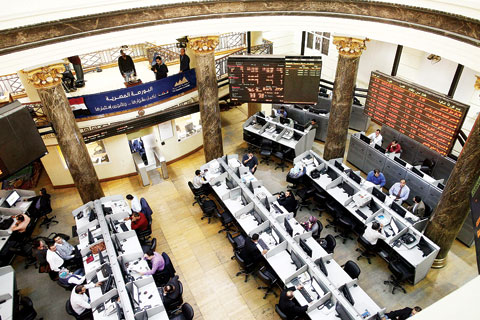The cabinet, headed by Prime Minister Sherif Ismail, met with economic experts from different fields Tuesday to promote the economic reform programme.
During the meeting, the ministers explained the current challenges and obstacles that Egypt is facing, in order to hear the different opinions on these problems from specialists.
The experts did not object to or have any reservations regarding the programme in light of their awareness of the conditions of the global economic picture, according to Hala El-Saied, dean of the faculty of economics and political science at Cairo University.
She said that this meeting, held with the prime minister, was the first of its kind and would not be the last, emphasising that it is healthy to listen to different opinions about how to reform the economy.
El-Saied noted that the programme focuses on increasing the numbers of beneficiary families from the social insurance’s cash support system to 1.7 million families within three years, instead of the current 900,000 families. It also aims to reduce in-kind support, so that the government can guarantee that subsidies will reach those who deserve it.
She added that the experts discussed the challenges facing the creation of sustainable sources of foreign currency by increasing exports and resolving obstacles that stop Egyptian industries from expanding and developing.
Economic expert Medhat Nafea said that the monetary policy autonomy was also extensively tackled, and how the lack of transparency is negatively affecting the economic climate.
He stated that the experts who participated in the meeting will prepare a file to present their opinion of the programme, its pros and cons, how they see reform, and how they would reduce the budget and trade balance deficits. The paper will be submitted to the prime minister soon, Nafea said.
Minister of Finance Amr El-Garhy presented the economic reform programme—which was approved by International Monetary Fund—to the experts, according to economic expert Hani Tawfik.
He believes that the major problem of Egypt’s economic woes lies in the lack of a clear monetary policy, which is compounded by governor of the Central Bank of Egypt, Tarek Amer, not having proposed anything in that regard.
During the meeting, Tawfik had proposed ideas that would enhance the Investment Law, which would allow the country to attract more investments and improve the economic climate.



